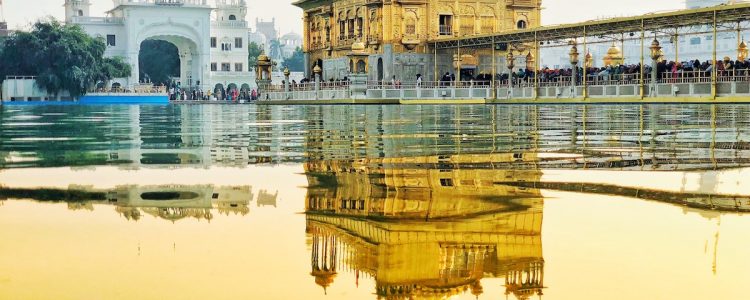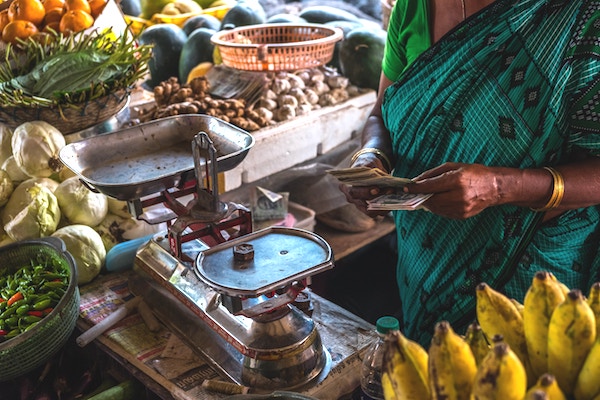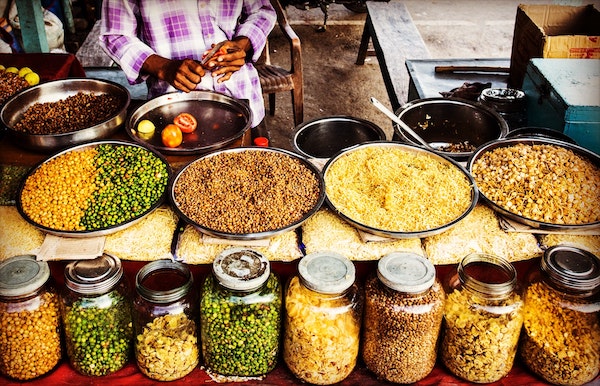1. Get vaccinated
There’s a number of diseases present in India that you may come into contact with on your trip. Make sure you book a travel health consultation to discuss all the risks you should be aware of and to complete any recommended courses of vaccinations before you leave. Check out our India health guide for more information.
2. Stay hydrated – drink plenty of safe water
It’s really important to stay hydrated, especially in hot and humid climates like those found in many parts of India. Always carry safe, clean water so you can drink water often. Do not drink tap water! Buy bottled water, making sure the seals are intact when you open bottles. You may also like to travel with your own filter bottle or water purification methods so that you don’t have to keep buying and throwing away bottles of water.
3. Pack medicines & a medical kit for India
If you get any minor scrapes, illnesses or injuries in India, having your own medical kit will mean you can quickly and safely treat yourself without expensive medical care. The Ultimate Medical Kit is packed with everything you’ll need for a trip to India including prescription medicines for travellers diarrhoea. Everything in your medical kit will be genuine and safe to use, which can’t always be guaranteed with pharmacies in India. Make sure you pack all the prescription medicines you’ll need while you’re away. It’s very common to pick up a bout of travellers diarrhoea in India, so you might like to pack your own safe, reliable Worldwide Diarrhoea Kit to clear it up quickly with a course of antibiotics.
4. If it’s not cooked and you can’t peel it – don’t eat it
When it comes to raw food like fruit and salads, don’t eat it if you cant peel it! Fruits and vegetables may have been washed in unsafe water that can infect you when eaten. Fruits that can be peeled should be safer since you can remove the washed outer layer.
5. Wash your hands and sanitise frequently
It’s easy to pick up bugs and bacteria as you go about your day. Make sure you kill germs by regularly washing your hands and using hand sanitiser. A surface sanitiser will sanitise your cutlery and any other surfaces you come into contact with such as a phone, laptop or make shift dining table.
6. Look for restaurants popular with locals
Avoid quiet restaurants, food that’s been sitting around may be carrying nasty bugs. Look to only eat in places that are busy and popular with locals. Local people won’t eat at a subpar restaurant, so follow their lead!
7. Enjoy the streetfood – if it’s hot, fresh and clean
It’s not hard to notice the differences between well kept streetfood stalls and those that might be lacking in regards to cleanliness. If you can see food sitting around keeping warm, especially if there’s flies on it, don’t eat the food. Check out the vendors tools and utensils, make sure they’re kept clean before you buy food. Make sure any food you buy from streetfood vendors is piping hot and freshly cooked to ensure any bugs are killed off.
8. Kit up properly for treks and trips
It can be easy when you’re travelling to head off on a last minute trek or trip, especially when you meet other travellers and want to have an adventure together. Just make sure you’re prepared with the right kit and clothing to keep you safe and healthy. Carry plenty of insect repellent, even if you’re not in a malaria area biting insects can still infect you with a number of diseases. Sturdy boots will save your feet and ankles from injury on long walks and treks. Pack plenty of sunscreen and a hat, too, to protect you from the sun. If you’re camping take lots of layers. It can still get chilly in the dead of night, especially if you’re in the northern mountain regions.
9. Don’t drink or do drugs to excess
Know your limits and avoid excessive drinking. You’re more liable to be injured, robbed or assaulted when you loose control. Make sure you’re capable of safely getting back to your accommodation without getting into any sticky situations due to a loss of awareness.
10. Get comprehensive travel insurance
It’s important to get travel insurance for India; if the worst does happen, you’ll be covered for medical care. Check that you are covered for everything you plan to do, and contact your insurer if you make any new plans while you’re away – you might not be covered for all activities.




No Comments
Be the first to start a conversation